Marietta High School Takes On Problems Outside The Classroom
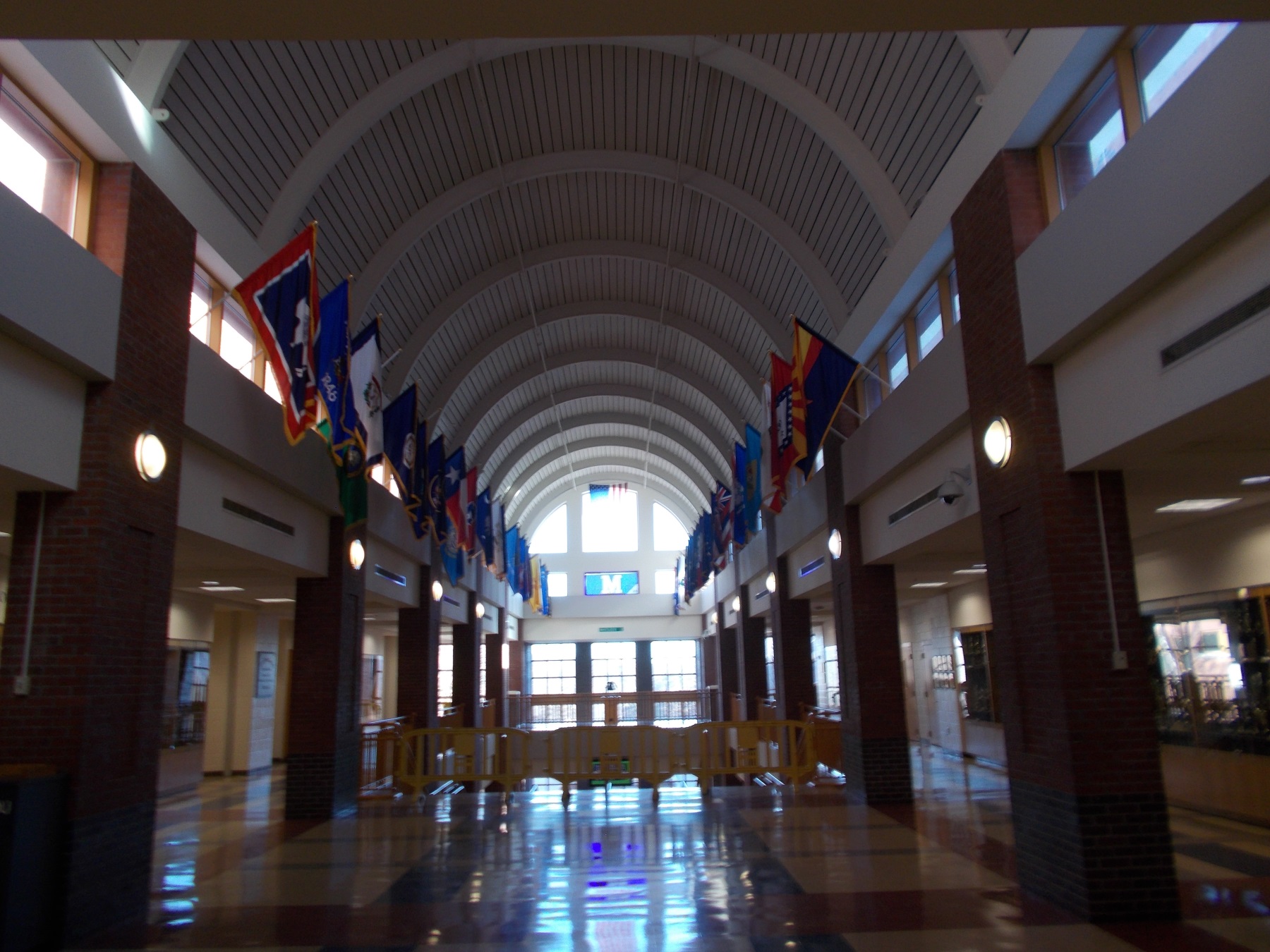
Marietta High School serves about 2,100 students from diverse backgrounds.
Martha Dalton / WABE
Public schools have changed over time. It’s rare to find one these days that concentrates strictly on academics.
Some schools say for kids to be successful, they need to offer services for students and their families.
Beyond The Classroom
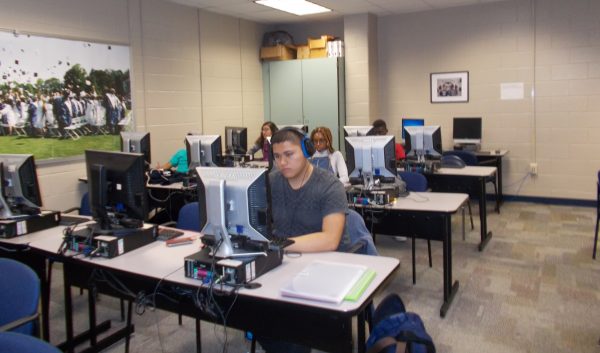
In 2015, Marietta High School began offering “wrap-around services.”
The Graduate Marietta Student Success Center, located on the school’s first floor, offers a range of counseling services, tutoring, college and career guidance, two food pantries and a closet where students can borrow suits or dresses. There’s even a laundry area where students can wash clothes.
Marietta Superintendent Grant Rivera says school leaders recognized students had needs that teachers couldn’t address in class. So, he says, they asked themselves this question:
”What are the needs of children as they walk in and out of our building that reflect not only the needs of our school but the needs of our community?’” Rivera says.
Rivera has been on the job just over a year. Former Marietta Superintendent Emily Lembeck and former Marietta High School Principal Leigh Colburn developed the student success center.
They started by surveying students about what they needed.
“Really, the idea was, ‘Let’s very intentionally and comprehensively survey our children,’” Rivera says. “When they tell us they have a need, we pivot services in our community and in our school to make sure we’re providing it.”
Marietta High serves about 2,100 students from diverse backgrounds. Just over half of them qualify for federal meal programs. School leaders say no matter what their backgrounds are, kids come to school with a range of problems.
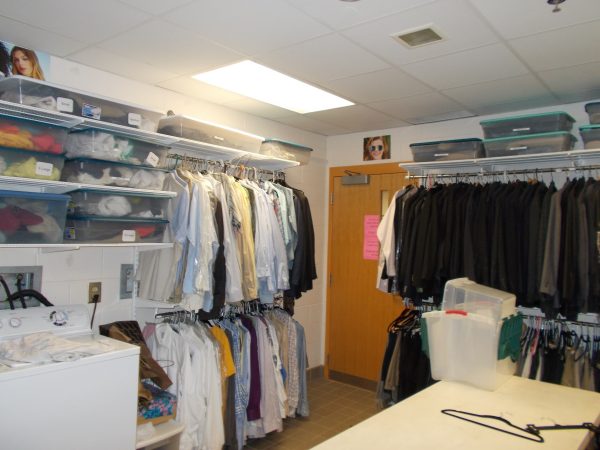
“If a child is expressing suicidal ideation or … concerns around their gender identity, we then provide those social-emotional therapeutic services to help the child focus on him or herself as well as then their academics,” Rivera says.
Going Past ‘The Three Rs’
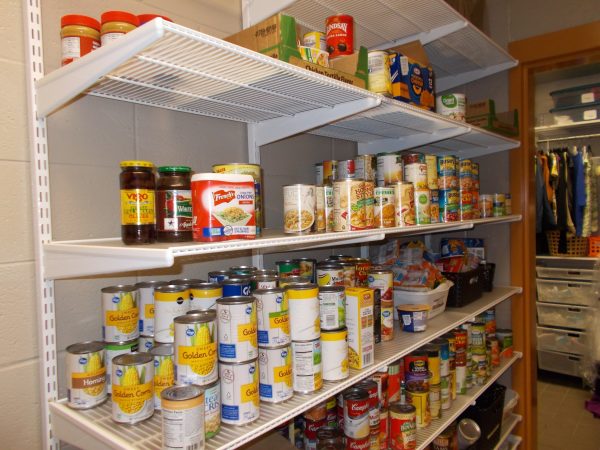
This approach contradicts the philosophy of “no excuses” school reformers, who believe a school’s success largely depends on good teaching, not additional services.
But Rivera says his district is committed to educating the “whole child.”
“We don’t educate kids just from 8 to 3 on a given school day,” Rivera says. “They’re more than test scores. These are children who bring, and families who bring, the reality and the dynamics of life inside our school buildings and inside our classrooms.”
Rivera says if the school didn’t try to help kids address the problems they’re struggling with, they could be harder to teach.
“We don’t educate kids just from 8 to 3 on a given school day. They’re more than test scores. These are children who bring, and families who bring, the reality and the dynamics of life inside our school buildings and inside our classrooms.”
–Marietta Superintendent Grant Rivera
“When my parents went through a divorce, I brought that to my high school math class, and my grades were different because I wasn’t present,” he says. “And, I think very, very simply: We’ve got an opportunity here to make sure no child falls through the cracks.”
That approach — ensuring kids don’t fall through the cracks — is taking hold across Georgia.
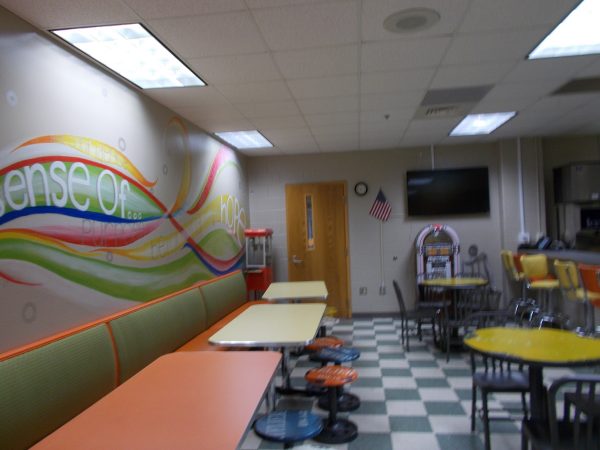
Lawmakers passed the First Priority Act last year, which aims to help the state’s lowest-performing schools. The law includes hiring a Chief Turnaround Officer to oversee improvement efforts. In October, the state board of education tapped Eric Thomas to serve in that role. He previously worked for the University of Virginia’s School Turnaround Program where he led school improvement efforts across the U.S.
Thomas chose a dozen schools to work with initially, most of them in central and south Georgia. He has said a key part of his approach to working with schools will be figuring out how to engage communities to provide services, much like Marietta High has done.
“How do we leverage the local university?” Thomas said. “How do we identify some sort of vision/mental health/medical care that’s maybe 40 miles away? Can we get someone to be here on campus maybe one day a week?”
Life After High School

The Graduate Marietta Student Success Center, of course, aims to help students be successful in high school. However, this year it took a step to ensure kids will be just as successful after they leave.
The school hired its first college counselor, Brandi Smith. Smith has advised students in private schools and has worked in college admissions.
“A lot of students — particularly in public schools — sort of undermatch themselves in college choice,” Smith says.
She says that’s what Caitlin Collins, a Marietta High senior, did at first. Collins says she waivered on whether she should pursue what she really wanted to study.
“In my mind, I already knew I wanted to be a doctor, but the practical side was like, ‘What if I don’t get into med school?’” she says. “’ I need to have something I can fall back on to start making money.’”
Collins says Smith convinced her to stick with pre-med. She’ll be a first-generation college student in the fall and has been accepted to several schools. Now, she says, the challenge will be finding one she likes that’s also affordable.
The Graduate Marietta Student Success Center has become a model in the region.
Other schools are developing similar “wrap-around” services. The Atlanta Public Schools has added features like health clinics and extra tutors at some schools. Thomas plans to enlist community resources for the schools he’s working with.
Marietta High’s graduation rate has ticked up since the center opened. The school’s score on the state report card has also improved. However, with only a few years’ worth of records available, it’s hard to know whether the center has contributed to those numbers.
The data does back up this “community” approach to schools. Research shows when schools provide additional services, students are more likely to stay … and graduate.








